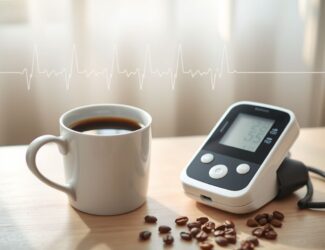
Recent Study: Coffee Reduces the Risk of Osteoporosis in Middle-aged and Older Individuals
Dubai, February 19, 2024 (QW): A recent cross-sectional study, published in Calcif Tissues International, has uncovered a connection between coffee consumption and the prevalence of osteoporosis among Americans aged 50 and above. Conducted using data from the National Health and Nutrition Examination Survey (NHANES) spanning from 2005 to 2014, the study highlights potential protective effects of moderate coffee intake against bone-related conditions.
The research challenges previous inconclusive findings regarding the relationship between coffee consumption and bone health. Despite existing evidence showcasing the positive impact of daily coffee intake on reducing the incidence of various metabolic diseases, the specific link to osteoporosis has remained uncertain.
The study involved 8789 participants, all aged 50 and above, who completed two non-consecutive 24-hour dietary recalls during NHANES survey cycles from 2005 to 2014. The analysis focused on evaluating the connection between coffee consumption and bone mineral density (BMD).
Key findings indicate that individuals who consumed up to two cups (16 oz) of coffee daily showed a reduced risk of osteoporosis and bone fragility in the femoral neck and lumbar spine. The study observed a significant decrease in the odds of femoral neck osteoporosis (FOO) among those with moderate coffee intake (OR 0.83; 95% CI, 0.72-0.95; p = 0.01) compared to those consuming other beverages.
Additionally, the study revealed a noteworthy relationship between daily caffeine intake and both femoral neck osteoporosis (FOO) and lumbar spine osteopenia/osteoporosis (LOO). Even after adjusting for factors such as decaffeinated coffee, tea, sugar-sweetened beverages (SSBs), and overall coffee consumption, the likelihood of osteoporosis and bone fragility persisted at both femoral and lumbar spine levels.
These results suggest that habitual moderate coffee consumption, defined as up to two cups per day, may offer protective effects against osteoporosis and bone fragility in the femoral neck and spine among adults aged 50 and above in the United States.



